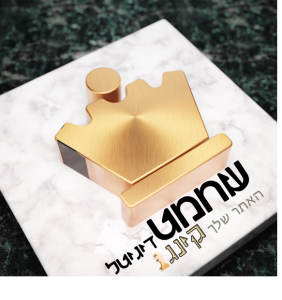CONSTANCY IS REFRESHING
“Prepare one lamb in the morning and the second lamb in the evening”
[Bamidbar [Numbers] 28:4]
This ritual was performed every day of the year. Even on special days, the additional sacrifices were “prepared in addition to the Tamid sacrifice.” This is the reason that the sacrifice is called “Tamid,” (permanent). Constant repetition is a worthy trait, to quote Tehillim [Psalms] [27:4]: “I ask but one thing from G-d, that I sit in the House of G-d all my days”. It is a trait which shows dedication to a goal, while it causes good deeds to become ingrained behavior. It is impossible to ignore an activity which is repeated every day.
Yet, there is another side to the coin. Something which is repeated every day can become mundane and monotonous. Enthusiasm drains away, the joy of an encounter with something new becomes dulled, and the activity is transformed into something automatic, without thought or special intention.
In order to counter this blunting of the senses, the Torah describes its demands as “a Tamid sacrifice, done at Mount Sinai” [Bamidbar 28:6]. However, whether “the ritual was described at Sinai but was not sacrificed there,” or whether “it was brought there and then never ceased,” [Chagiga 6b], why was it necessary to mentionMount Sinai in this verse?
For an answer, look at the enthusiasm of a young boy who wears Tefillin [phylacteries] for the first time in his life! What joy! What happiness! We are filled with jealousy when we see him, while we adults perform this mitzva [commandment] by rote. Similarly, look at the atmosphere of the first sacrifices brought at Mount Sinai. When they were brought, the people “saw the G-d of Israel, and under His feet was an object of sapphire bricks, pure as heaven” [Shemot [Exodus] 24:10]. When the Torah commands us to bring the daily Tamid, it reminds us of the initial exhilaration: “A Tamid sacrifice, done atMount Sinai”.
There is value to consistency and perseverance, but a feeling of innovation is also important. King David wanted to have the best of both worlds, and not only did he ask “to sit in the House of G-d all my days,” he also wanted “to visit His sanctuary.” This seems to be a contradiction in terms. One can either dwell permanently or visit, but not both at the same time. The explanation is as we have described above: David wanted to have the advantage of both “a permanent sacrifice” and one “made at Mount Sinai.” The same paradox is expressed in the verse, “And I will betroth you to me forever” [Hoshaya [Hosheah] 2:21] – the time of betrothal is temporary, a prelude to a long life together. How can both be included in the same verse? The answer is that this is exactly what G-d promised Bnei Yisrael [The Children of Israel]: Not only will the covenant with the nation be permanent and last forever, at the same time it will never lose its spirit of novelty and freshness, the enthusiasm which was felt at the moment that the covenant was formed. This is indeed “a permanent sacrifice, made at Mount Sinai.”

 שחמט דיגיטל
שחמט דיגיטל